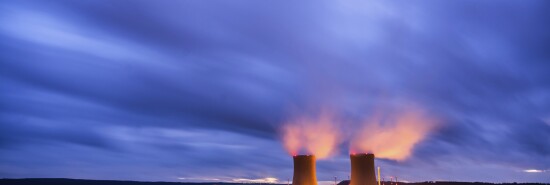
Germany to phase out last three nuclear reactors for good
Breanne Deppisch
Video Embed
Germany will power down its final three nuclear reactors on Saturday, making good on the country’s long-awaited nuclear phaseout even amid Europe’s energy crisis caused by Russia’s war in Ukraine.
Germany’s remaining Isar 2, Neckarwestheim 2, and Emsland nuclear reactors currently make up some 6% of the country’s total energy mix, or roughly 4,055 megawatts of capacity.
LACK OF CHARGERS, RANGE ANXIETY, AND RELIABILITY FEARS MAKE DRIVERS WARY OF EVS
All three will be shut down on April 15, under the extended timeline proposed last fall by Germany’s governing coalition.
The final three reactors had been slated for closure at the end of 2022 along with the rest of the country’s nuclear fleet.
In October, however, German Chancellor Olaf Scholz proposed to extend their lifespan through mid-April, citing the supply concerns caused by the war and the resulting Western sanctions.
Prior to the war, Germany was the European Union’s largest importer of Russian energy supplies and relied on Moscow for roughly 55% of its natural gas, leaving it especially vulnerable to the sharp drop-off in Russian supplies, especially Russia’s throttling of gas deliveries via the Nord Stream 1 gas pipeline, which were later halted completely.
Germany’s push to power down its nuclear fleet represents a sharp departure from others in the EU that have embraced nuclear power as a near-term bridge to help aid in a transition to green energy.
This debate has divided the EU, pitting nuclear skeptics, such as Germany, Belgium, Portugal, Denmark, and Austria, against pro-nuclear members, led most prominently by France, the global nuclear powerhouse that receives nearly 70% of its energy supply from nuclear power plants.
Earlier this year, France launched a “nuclear alliance” among EU member states, partnering with 12 countries to advocate more prominently for nuclear power.
Even in Germany, public opinion has also shifted on nuclear power. A majority of residents now hold a favorable view of the power source, in contrast to previous years.
An August 2022 poll conducted by German broadcaster ARD found that more than 80% of German residents said they were in favor of extending the country’s nuclear reactors. Among those polled, many said they viewed nuclear power as a preferable alternative to falling back on coal-fired plans for energy production.
This could be the unenviable path forward for Germany, which has already resurrected or extended the life of some of its coal plants through December 2024 in a bid for baseline power supply.
CLICK HERE TO READ MORE FROM THE WASHINGTON EXAMINER
This past winter, Germany burned coal at the highest rate in at least six years, according to data from the site Electricity Maps — at times, polluting as much as South Africa and India.
Germany needs to increase its renewable power generation sharply if it hopes to offset the nuclear power generation and meet its climate targets: To met that target, Germany needs to install “four to five wind turbines every day” over the next few years, Scholz said.
